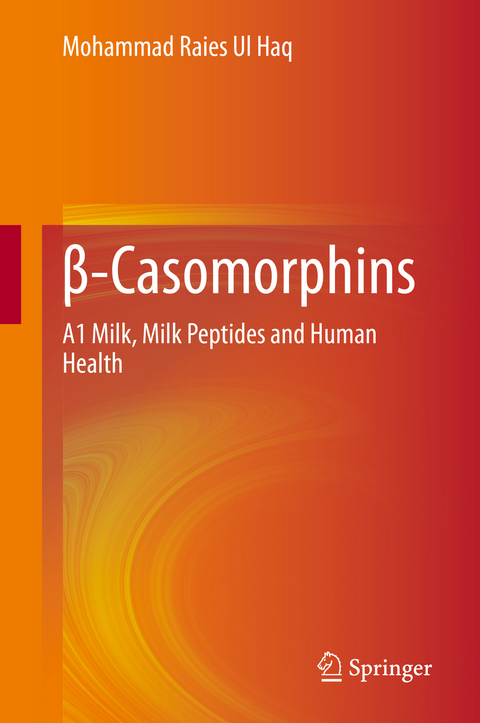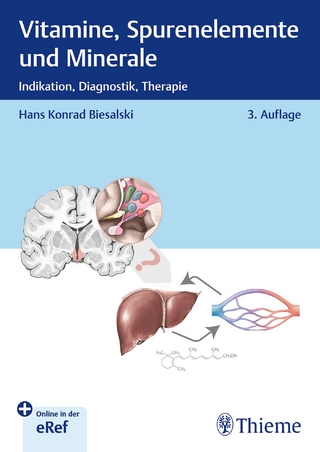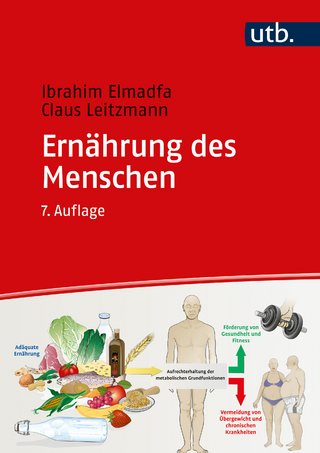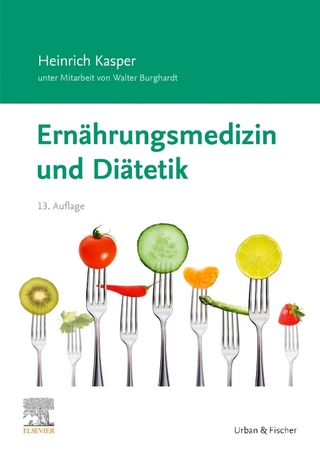
β-Casomorphins
Springer Verlag, Singapore
978-981-15-3456-0 (ISBN)
This book compiles the latest research on the A1 and A2 forms of cow milk, and attempts to show a correlation between the type of cow milk consumption and reported incidence of certain diseases (type 1 diabetes mellitus, cardiovascular diseases, sudden infant death syndrome and neurological disorders). Cow milk generally contains two types of β-casein, A1 or A2. The book describes the A1/A2 hypothesis, its foundation and the genetics behind it. It discusses the two forms of milk and why one is considered more harmful than the other.
Seeking to provide a balanced view of the milk types, the book’s initial chapters highlight the structure, function and physiological activity of β-casomorphins. Subsequent sections describe the health concerns associated with A1 milk, and the various case studies and research surrounding it. In turn, the arguments against the hypothesis put forward by EFSA, American Nutritionists and Truswell are also highlighted.
The book does not make any recommendations for dairy consumers; rather, it is a collection of essential data both in favour and against the hypothesis. Further mechanistic studies involving well-designed animal and human trials at the cellular, molecular, biochemical and immunological levels will be needed in order to draw sound conclusions. Overall, the hypothesis is fascinating, and possibly significant. However, verified and authenticated research with reproducible results is needed to make final consumer recommendations. This timely book offers a valuable resource for researchers and students of dairy science, as well as industry experts.
Dr. Mohammad Raies Ul Haq holds a PhD in Biochemistry from the National Dairy Research Institute (NDRI)-Indian Council of Agricultural Research (ICAR) and currently serves as a faculty member (Assistant Professor, Biochemistry) at Sri Pratap College, Cluster University Srinagar. He is an Editorial Board Member of the Journal of Dentistry & Oral Disorders, and of Acta Scientific Nutritional Health. A member of the Society of Biological Chemists and Indian Science Congress, Dr. Raies has several years of experience in the areas of teaching, research and student counseling. He has worked as a lecturer at the Department of Biochemistry, University of Kashmir. Dr. Raies has several research publications in reputed international journals like Food Chemistry (Elsevier), European Journal of Nutrition (Springer), Journal of Functional Foods (Elsevier) and International Journal of Food Properties (Taylor & Francis) to his credit.
Chapter 1. Cow Milk.- Chapter 2. A1/A2 Cow Milk Hypothesis.- Chapter 3. β-Casomorphins I.- Chapter 4. β-Casomorphins II.- Chapter 5. A1 Milk and Type 1 Diabetes Mellitus (T1D).- Chapter 6. A1 Milk and Heart Diseases.- Chapter 7. A1 Milk and Neurological Disorders.- Chapter 8. Critique of the Hypothesis.- Chapter 9. Conclusions and Future Perspectives.
| Erscheinungsdatum | 03.04.2020 |
|---|---|
| Zusatzinfo | 7 Illustrations, color; 1 Illustrations, black and white; XX, 128 p. 8 illus., 7 illus. in color. |
| Verlagsort | Singapore |
| Sprache | englisch |
| Maße | 155 x 235 mm |
| Themenwelt | Medizin / Pharmazie ► Gesundheitsfachberufe ► Diätassistenz / Ernährungsberatung |
| Naturwissenschaften ► Biologie ► Biochemie | |
| Naturwissenschaften ► Biologie ► Mikrobiologie / Immunologie | |
| Technik ► Lebensmitteltechnologie | |
| ISBN-10 | 981-15-3456-X / 981153456X |
| ISBN-13 | 978-981-15-3456-0 / 9789811534560 |
| Zustand | Neuware |
| Haben Sie eine Frage zum Produkt? |
aus dem Bereich


